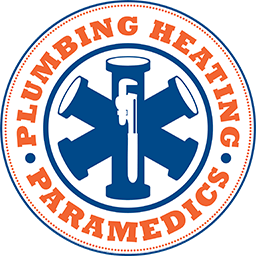
Stubborn clogs are a common yet frustrating issue for many homeowners. If not promptly addressed, these blockages can disrupt daily routines and potentially cause more severe plumbing problems. Understanding the root causes of these clogs is crucial in tackling them effectively and preventing future recurrences.
Most clogs are caused by the accumulation of debris, such as hair, grease, food particles, and other foreign objects in the pipes. Over time, these materials build up and restrict water flow, leading to slow drains or complete blockages. Understanding what triggers these clogs and how to prevent them can save you from frequent and costly plumbing repairs.
We believe that a proactive approach is essential for maintaining a healthy plumbing system. This means not only addressing clogs as they happen but also taking steps to prevent them. Our team is dedicated to helping you keep your drains clear and functional, providing advice on effective tools and techniques for clearing stubborn clogs, as well as highlighting when it’s time to call our professionals for assistance. Understanding these aspects will help you maintain a smooth-running plumbing system in your home.
Understanding What Causes Stubborn Clogs
Stubborn clogs can occur for a variety of reasons, each presenting its own set of challenges. One of the most common causes is the buildup of grease and food particles in kitchen sinks. As grease cools, it hardens and sticks to the walls of your pipes, gradually accumulating other debris and causing blockages.
In bathrooms, the main culprits are usually hair, soap scum, and personal care products. Hair can easily get tangled and trapped in the drain, while soap scum builds up over time and narrows the passage for water flow. Additionally, items like cotton swabs and hygiene products can create significant obstructions if accidentally flushed or washed down the sink.
Outdoor drains are also susceptible to stubborn clogs, primarily because of tree roots infiltrating the plumbing system. Roots can enter through small cracks in pipes, growing and expanding inside, eventually blocking the flow of water and even causing structural damage to the plumbing.
Effective Tools and Techniques for Clearing Clogs
When it comes to clearing stubborn clogs, having the right tools and techniques is essential. One of the simplest and most effective tools is a plunger. By creating suction and pressure, a plunger can often dislodge minor clogs in toilets and sinks.
For tougher blockages, a drain snake or auger can be invaluable. This tool can be manually or electrically operated, allowing the flexible metal cable to reach deep into pipes to break apart or retrieve stubborn debris. Chemical drain cleaners can also be effective, but they should be used with caution due to their potential to damage pipes and harm the environment.
For more complex or severe clogs, hydro-jetting is an advanced technique that utilizes high-pressure water to clean the inside of pipes thoroughly. This method is particularly useful for clearing tree roots and other hard-to-remove obstructions.
While these tools and techniques can be very effective, it’s important to know their limitations. Understanding when a clog is too severe to handle on your own can prevent further damage and ensure the problem is resolved efficiently by our professionals.
Preventative Measures to Avoid Future Clogs
Preventing clogs before they become a problem is the key to maintaining a healthy and efficient plumbing system. Start by being mindful of what goes down your drains. In the kitchen, avoid pouring grease or cooking oils into the sink. Instead, let them cool and dispose of them in the trash. Use a sink strainer to catch food particles and debris, which can then be easily emptied into the compost or garbage.
In the bathroom, install drain guards to catch hair and prevent it from going down the drain. Encourage everyone in the household to be cautious about what is flushed down the toilet. Items like wet wipes, cotton swabs, and feminine hygiene products can cause significant blockages and should be disposed of in the trash instead.
Regular maintenance also plays a crucial role in preventing clogs. Pouring boiling water down your kitchen sink once a week can help dissolve fat or grease buildup. Occasionally treating your drains with a mixture of baking soda and vinegar can also help keep them clear. This simple practice can make a big difference in preventing stubborn clogs and maintaining the overall health of your plumbing system.
When to Call Our Professionals for Help with Stubborn Clogs
While some minor clogs can be managed with household tools and methods, there are situations where professional help is needed. If you notice that your drains are frequently clogging despite taking preventive measures, it may indicate a more serious underlying issue. In such cases, our professionals can conduct thorough inspections to identify and resolve the root cause.
If plungers and drain snakes fail to clear the blockage, it’s time to reach out to our technicians. Persistent clogs can be a sign of more significant problems, such as tree roots invading your pipes or severe buildup that requires specialized equipment like hydro-jetting to remove. Additionally, if you hear unusual noises coming from your drains or detect foul odours, it’s essential to get in touch with us immediately to avoid further damage.
Professional intervention ensures that the problem is handled safely and effectively. Our technicians have the expertise and equipment necessary to diagnose and resolve even the most stubborn clogs, protecting your home’s plumbing system from potential damage and ensuring everything runs smoothly again.
Conclusion
Understanding and addressing common drain blockages is essential for maintaining a healthy and efficient plumbing system. By recognizing the causes of stubborn clogs, using the right tools and techniques, and adopting preventative measures, you can minimize the risk of severe plumbing issues. However, recognizing when to call for professional help is equally important to ensure your plumbing system remains in optimal condition.
Maintaining the health of your drains not only prevents inconvenient and costly repairs but also contributes to the overall well-being of your home. Our team at Plumbing and Heating Paramedics is here to assist with any plumbing concerns you may have. Ensure your plumbing system is in top shape by reaching out to us for expert advice and drain cleaning services in Langdon and beyond. Contact us today for reliable and efficient plumbing solutions!
Call us at (403) 452-2911 or Book Now an appointment.
When to Call a 24 Hour Plumber
Plumbing problems can strike at any time, often when you least expect them. A leaking pipe or a malfunctioning water heater can quickly turn into a full-blown emergency that needs immediate attention. Knowing when to [...]
Effective Drain Cleaning Techniques
Maintaining clean and clear drains is vital for the smooth operation of your plumbing system. Clogged or slow drains can lead to a host of issues, including unpleasant odours, slow water drainage, and even serious [...]
How Our Emergency Plumbers Handle Urgent Repairs
Plumbing emergencies can occur without warning, causing significant inconvenience and potential damage to your home. From burst pipes to sudden leaks, these issues require prompt and professional attention. Our emergency plumbers are ready to respond [...]






